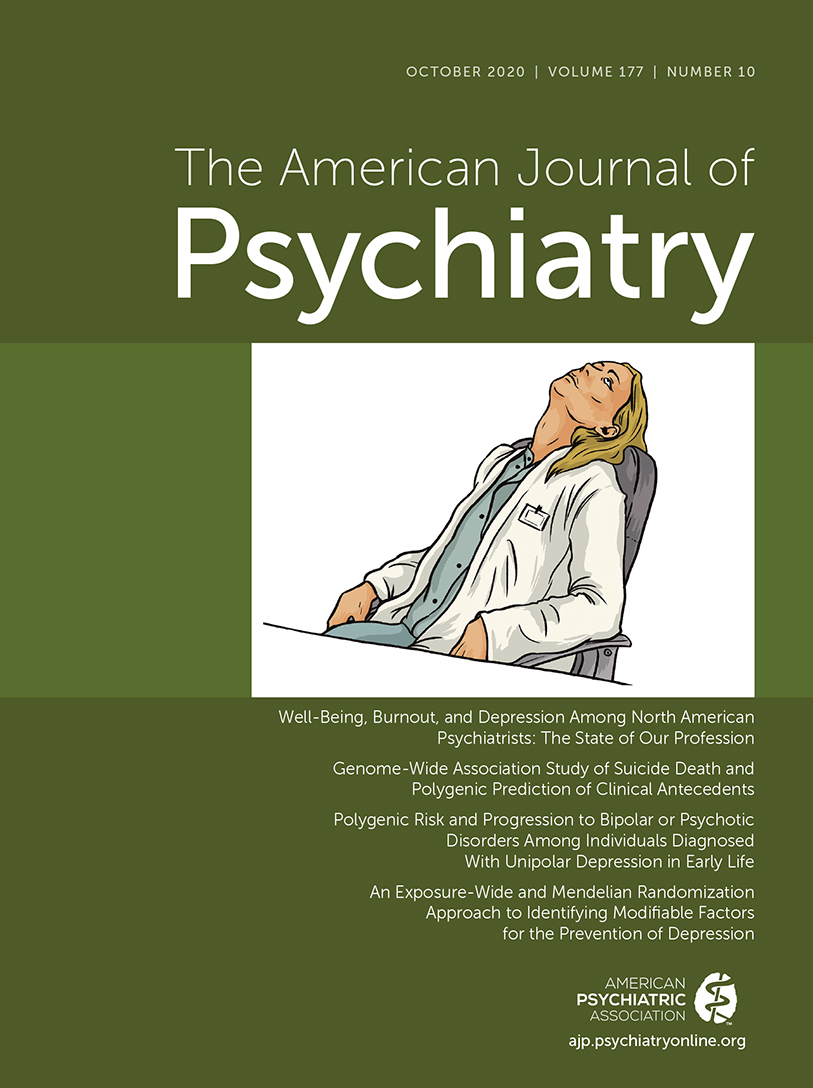Polygenic Risk and Progression to Bipolar or Psychotic Disorders Among Individuals Diagnosed With Unipolar Depression in Early Life
Abstract
Objective:
The authors investigated the associations between polygenic liability and progression to bipolar disorder or psychotic disorders among individuals diagnosed with unipolar depression in early life.
Methods:
A cohort comprising 16,949 individuals (69% female, 10–35 years old at the first depression diagnosis) from the iPSYCH Danish case-cohort study (iPSYCH2012) who were diagnosed with depression in Danish psychiatric hospitals from 1994 to 2016 was examined. Polygenic risk scores (PRSs) for major depression, bipolar disorder, and schizophrenia were generated using the most recent results from the Psychiatric Genomics Consortium. Hazard ratios for each disorder-specific PRS were estimated using Cox regressions with adjustment for the other two PRSs. Absolute risk of progression was estimated using the cumulative hazard.
Results:
Patients were followed for up to 21 years (median=7 years, interquartile range, 5–10 years). The absolute risks of progression to bipolar disorder and psychotic disorders were 7.3% and 13.8%, respectively. After mutual adjustment for the other PRSs, only the PRS for bipolar disorder predicted progression to bipolar disorder (adjusted hazard ratio for a one-standard-deviation increase in PRS=1.11, 95% CI=1.03, 1.21), and only the PRS for schizophrenia predicted progression to psychotic disorders (adjusted hazard ratio=1.10, 95% CI=1.04, 1.16). After adjusting for PRSs, parental history still strongly predicted progression to bipolar disorder (adjusted hazard ratio=5.02, 95% CI=3.53, 7.14) and psychotic disorders (adjusted hazard ratio=1.63, 95% CI=1.30, 2.06).
Conclusions:
PRSs for bipolar disorder and schizophrenia are associated with risk for progression to bipolar disorder or psychotic disorders, respectively, among individuals diagnosed with depression; however, the effects are small compared with parental history, particularly for bipolar disorder.



